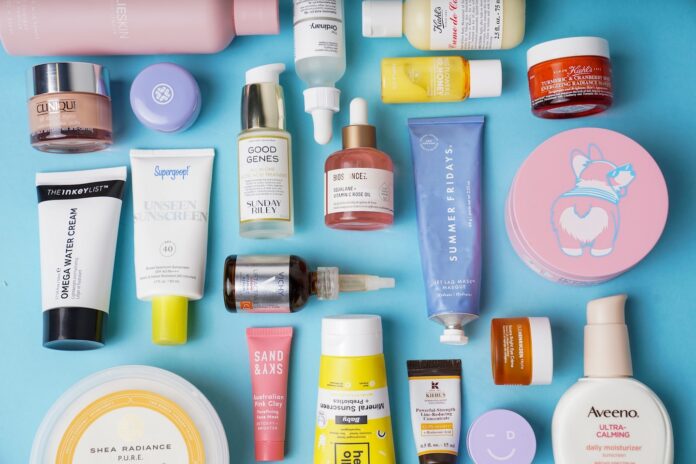Emily Dubrovsky, a graphic designer from Minnetonka, Minnesota, looked at herself on Zoom and barely recognized the woman staring back at her. It wasn’t the slight signs of aging that concerned her but rather how she could improve on them. So, she decided to embark on a skincare and makeup journey and started investing in clean and minimalist brands – because sometimes, less is more. Her skincare regimen includes using Merit Beauty’s concealer/foundation stick and blending brush to blur her fine lines, and a cream from Ursa Major to nourish her under the eyes. Dubrovsky admits to pouring nearly $1,000 into beauty products in the past year, almost triple the amount she spent the year before, and she says it’s absolutely worth it. After all, it’s a small price to pay to look fabulous and keep her self-esteem booming.
The beauty industry has become synonymous with wellness, with a new category called “self-care” that includes purchasing beauty products like lipstick and moisturizers. Experts say it’s the ultimate escape from all the madness, giving people immense joy and fun by putting on a bright lip or wearing some eye shadow. It’s an easy and simple form of self-expression, without the need for complicated rituals. Now, people like Hilda Davis, a 73-year-old retired psychologist from Houston, say it feels like home when she massages balm into her skin or runs oil through her hair. Davis has been purchasing from EssenceTree for 17 years, an organic and holistic skincare line she says helped her get through immensely stressful times, especially with the scent of fresh body oil that relaxes her, reminding her that some things never change.
The sense of comfort and confidence one gets from a beauty regimen is a theme that the industry has embraced, and it’s helped build strong habits. Sales of U.S. mass-market beauty and products – brands typically sold at grocery and drugstores – totaled $30 billion last year, up 4 percent from 2021, while prestige category brands like Armani, Charlotte Tilbury, and Fenty, saw a 15 percent year-over-year growth in sales. This growth has led to new store openings for Ulta Beauty, which has seen its quarterly sales surge more than 18 percent in Q4 of 2022. Ulta Beauty has more than 48 new stores, which has seen record high revenue of more than $10 billion and annual net income exceeding $1 billion. Foot traffic in early 2023 was also up by 16.5 percent YoY, according to data from analytics firm Placer.ai.
Kecia Steelman, the Chief Operating Officer of Ulta Beauty, believes that the company’s success stems from offering an expansive mix of brands and price points, from Chanel to CeraVe to e.l.f., which has helped insulate it from consumers’ economic uncertainty. “We’ve got something for everyone no matter what your budget is, but what we see is that among all income sectors, we’re performing very well. Spending money on yourself to feel good about yourself is still really relevant” to consumers.
The luxury goods group LVMH, owner of Sephora, has also seen significant gains, where perfume and cosmetic sales grew 11 percent compared to the same period last year. At a time when inflation remains historically high and has affected many segments, including furniture, apparel, and technology, beauty remains an outlier. The industry has shown resilience over the years, as is evident from the “lipstick index” – a term coined during the 2001 recession by Estée Lauder heir and chairman Leonard Lauder, who noticed that lipstick sales still managed to climb during the economic downturn. Beauty is still thought of as a relatively low-ticket indulgence, especially for those who still want to invest in themselves.
For Maria Clara Paul, a 19-year-old sophomore at Case Western Reserve University in Cleveland, dedicating part of her earnings to skincare is just as important as spending on healthcare. With a high-quality sunscreen and serum, Paul believes it’s an investment in her health because, after all, skin is an organ that deserves love and attention every day. It’s all about taking care of oneself, and skincare is now easily accessible thanks to the vast selection of brands available everywhere from Target and Kohl’s to Dollar General. Social media has also helped by opening up opportunities for diverse founders and ushering in an accessible way for new beauty shoppers to learn about products and how to use them. As Kendra Bracken-Ferguson, the founder and chief executive of the marketing agency BrainTrust said, “When you think about it, beauty and wellness are really the only category that touches every single person, no matter who you are, no matter what you look like, no matter where you live.”
Serious News: washingtonpost

